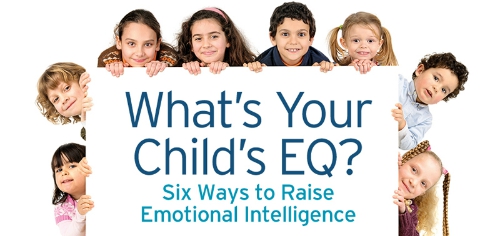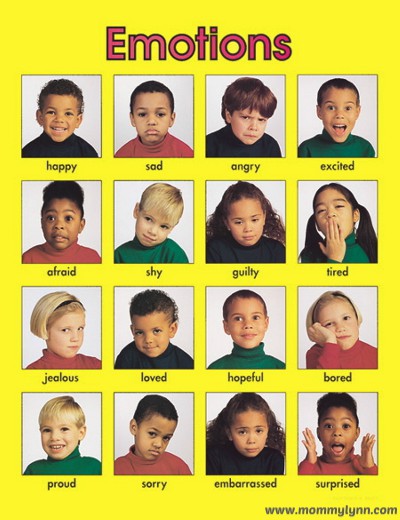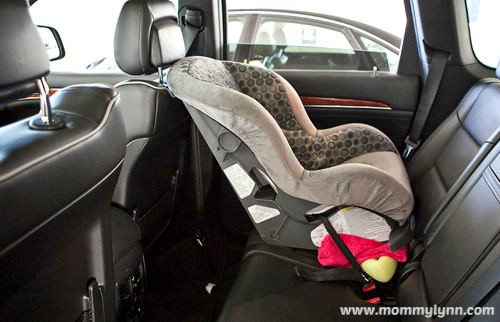Why EQ Is Important For Your Child
We as parents often look to nurturing our child’s Intelligence Quotient (IQ) but have you ever given thought to Emotional Quotient (EQ) or Emotional Intelligence (EI)? What is Emotional Quotient (EQ)?

EQ is a person’s ability to identify, evaluate, control and express emotions and this helps us communicate with others. In other words, a person’s ability to interact with others.
According to Harvey Deutschendorf, the emotional intelligence expert and also the author of “The Other Kind of Smart”, there is a great deal of research that shows emotional intelligence helps in all areas of life, and like any skill, it can be taught to children.
“Being able to relate to and get along with others will determine how successful, happy, and fulfilled their lives will be as adults,” he says.
“It is much easier to teach this to children early, so that they grow up to be healthy, well-functioning adults.”
EQ can help your child establish successful relationships and make sound judgements later in life. As much academic achievements are important, EQ is as important as we need to realise that we would have to prepare our little ones for the real world.
By nurturing their EQ, it helps them to achieve a well-rounded development. EQ is essential in building a balanced life. Here are some ways it’s beneficial.
Physical Health
With a higher EQ, chances are your child will manage stress better. By being aware of their emotional state, they are able to cope with stress and maintain better health.
Mental Well-Being
EQ affects your child’s attitude and outlook in life. With a higher EQ, it can help alleviate anxiety and avoid depression and mood swings. A higher level of EQ can translate to a positive attitude and happier outlook in life.
Relationship
With better understanding and managing our own emotions, it will be easier to communicate feelings in a more constructive way in fostering better relationships.
Leadership
People with higher EQ makes better leaders as they understand what motivates and are able to build stronger bonds with others.
Here are six ways to build emotional intelligence in your child:

1) Recognise their own emotions
Help your child discover the different emotions. For example, your kid is feeling upset because she couldn’t go to the park due to rain, you can give her a cue by saying, ‘You feel sad because you couldn’t go to the park today, isn’t it?’
I often ask my kids questions like ‘How do you feel if your friends don’t share their toys with you?’, ‘Do you feel happy after eating ice cream?’, ‘Today we are going to the parenthood playland, do you feel excited?’.
With this, you are not only telling them what these different emotions are but in what context it could affect others around them.

You can ask your kid to write down or draw what he/she is feeling and name his/her “Emotion”. Eventually they will get to know what it feels like to be happy, excited, sad, or frustrated and take ownership of what they are feeling.
2) Validate emotions
Help your children learn by allowing outbursts and giving them permission to express feelings, while still maintaining order. Many times, it is fine to let your kids throw tantrums. However, some parents fail to understand that these outbursts are the way the kids vent out their emotions.
Many kids do not know how to express their anger or frustration in a healthy manner, and then when the parents tell their kids not to get upset over a petty thing; it makes the child more frustrated.
Children need parents to accept their emotions. For instance, when my darling girl is feeling angry because she couldn’t solve a puzzle, then instead of telling her that there is no reason to get upset over such a small problem; I acknowledge her natural reaction by asking “You are feeling frustrated because you couldn’t finish your puzzle, isn’t it?”
Disapproving of her fear or anger won’t stop her from having those feelings, but it may well force her to repress them. Those repressed emotions may come out in later life in unconscious way, such as aggressive behaviour or mood swings.
3) Parents need to learn first
One of the best ways to foster EQ is to show it. The parents must become emotionally intelligent first in order for the child to become emotionally intelligent.
Sharing with them your feelings and showing them by example on how you deal with your feelings will give them an idea of how they can deal with these ‘big’ emotions by themselves when they need to.
But beware that children often learn through example, so keep it in mind that you as the parent will have to set a good example for them.
4) Always show empathy
To empathise is the ability to understand and share the feelings of another but it doesn’t mean that you are agreeing, just that you see it from his side too.
Once you teach your child how important it is to talk about how he is feeling, he will tell you how he feels all the time.
Acknowledge his feelings but if you don’t agree to what he wants, explain why. Suppose it is dinner time, and my child is still playing; then I will tell her “It’s hard for you to stop playing and come to dinner, but it’s time now.”
5) Encourage problem solving
Parents should help their children to brainstorm and solve their problem. If your child is not able to solve problems, give them various options by which their problem can be solved and ask them to pick the option they think is the best.
For example, my child tells me that she had accidentally tore her sister’s book. Instead of chiding her for being careless, I use this as an opportunity to show her how to deal with the problem.
First ask her how she would want to fix the problem? Does she want to apologise to her sister first for her carelessness or to paste the book back together first? This shows her that there is always a solution to a problem.
6) Be sensitive to others
Your child emulates the way you show compassion to him, so teach him to extend the same principle towards others. Soon you will see your child asking a friend why she is sad and offering to cheer her up.



Leave A Comment